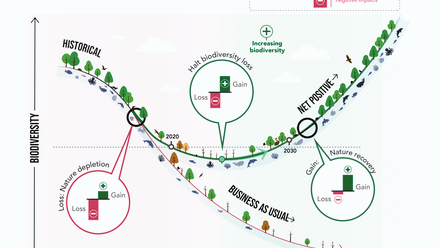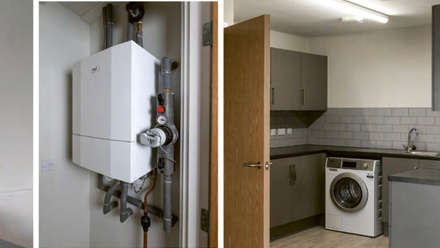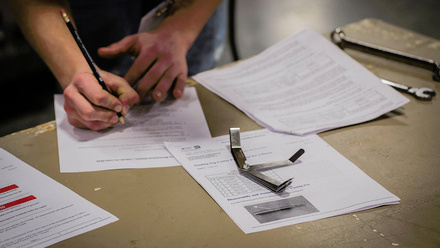CIAT | Working with the new government
In its Be the change to lead the future of our built environment document, the Chartered Institute of Architectural Technologists (CIAT) outlined key recommendations for the next UK government, focusing on three main areas:
- Low Carbon and Retrofit: Urging tighter regulations and prioritising the retrofit of existing buildings to reduce carbon emissions.
- Building Safety: Emphasising the need for ongoing competence in building safety to restore public confidence post-Grenfell.
- Skills Shortages and Recognition: Highlighting the necessity for a broader range of skilled professionals and greater support for new entrants into the sector.
As soon as the election is over and a new government has been elected, CIAT will seek early meetings with new ministers, as well as their senior departmental civil servants, to address the gaps between what we believe is needed and their proposed policy agendas. A manifesto is simply a list of promises, and there are many examples of new governments changing direction once they have been in power long enough to be able to accept and adapt to the real, 'on the ground' situation.
Reviewing how the discipline of Architectural Technology may be affected tomorrow, here is how the 2024 election manifestos of the Conservative, Labour, and Liberal Democrat parties align with CIAT’s recommendations:
1. Low Carbon and Retrofit
Conservative Party
- Commitment to Net Zero: The Conservatives reaffirm their dedication to achieving net zero by 2050 with a strong focus on green technologies.
- Green Building Standards: Introduction of stricter building regulations to improve energy efficiency in new and existing buildings.
- Innovation in Green Technology: Support for research and development in green construction technologies, promoting sustainable practices within the industry.
- Retrofit Funding: A significant increase in funding for retrofit programmes targeting residential and commercial properties to enhance insulation and reduce energy consumption.
Labour Party
- Green New Deal: Aiming for rapid transitions to renewable energy, Labour plans large-scale retrofitting of homes and public buildings.
- Comprehensive Retrofit Strategy: Labour emphasises upgrading millions of homes to meet high energy efficiency standards, aligning closely with CIAT's call for prioritised retrofitting.
- Financial Incentives: Grants and low-interest loans for homeowners and businesses to undertake energy-efficient retrofitting projects.
Liberal Democrat Party
- Aggressive Timeline: Pushing for an accelerated decarbonisation timeline targeting net zero by 2045, with significant investments in energy efficiency improvements.
- Zero-Carbon Homes: Mandating zero-carbon standards for all new homes by 2025 and supporting extensive retrofitting efforts.
- Support for Local Authorities: Enhanced funding for local councils to implement decarbonisation and retrofit initiatives, ensuring tailored solutions that meet specific community needs.
2. Building Safety
Conservative Party
- Enhanced Building Regulations: Strengthening regulations to ensure new buildings are safe and sustainable.
- Safety Oversight: Focus on improving safety standards and monitoring compliance, addressing the issues raised post-Grenfell.
Labour Party
- Building Safety Prioritisation: Labour plans to work collaboratively with experts to ensure all buildings meet rigorous safety standards.
- Social Housing Upgrades: Emphasis on retrofitting social housing, not only for energy efficiency but also for safety improvements.
Liberal Democrat Party
- Stringent Safety Measures: Implementing strict safety standards for new and existing buildings, aligning with the need for ongoing competence in building safety.
- Local Authority Empowerment: Providing local councils with the resources to enforce building safety regulations effectively.
3. Skills Shortages and Recognition
Conservative Party
- Apprenticeships and Vocational Training Programmes: Increasing the number of apprenticeships in construction and related fields to address skills shortages.
- Construction Academies: Establishment of new academies focused on training in construction and green technologies.
- Industry Collaboration: Working with industry leaders and membership organisations to develop relevant training programmes.
Labour Party
- Green Jobs Revolution and Training: Creating thousands of green jobs, including in the construction sector, and training programmes to ensure a skilled workforce for the future.
- Educational Reforms: Integrating sustainability and construction skills into the education system at various educational levels.
Liberal Democrat Party
- Lifetime Skills Guarantee: A promise of lifelong learning opportunities, enabling individuals to reskill and upskill as needed throughout their careers.
- Support for Apprenticeships: Strengthening and expanding apprenticeship programmes, with a focus on green construction skills.
- Collaboration with Educational Institutions: Working closely with universities and colleges to develop courses that meet the current and future needs of the construction industry.
Recognition of Built Environment Professionals
Conservative Party
The Conservative Party promises to recognise and support professionals in these ways:
- Professional Development Support: Providing support for continuous professional development (CPD) programmes to ensure that professionals remain at the forefront of industry advancements.
- Recognition and qualification: Working with relevant bodies to enhance the recognition and qualification processes for professionals.
Labour Party
Labour's manifesto includes commitments to the following:
- Professional Standards: Strengthening qualification standards and the recognition of through robust education and training.
- Support for skills efforts: Providing financial and policy support to bodies that educate, train and represent the workforce.
Liberal Democrat Party
The Liberal Democrats focus on professional recognition by:
- Enhanced Recognition: Promoting and enhancing ways to recognise the skills and contributions of professionals.
- Visibility and Advocacy: Increasing the visibility and advocacy for professionals within government policy frameworks, ensuring their role is understood and valued.
Conclusion
All three main parties acknowledge the importance of sustainability, safety, and skills development in the built environment, reflecting CIAT’s recommendations. Labour and the Liberal Democrats offer particularly strong commitments to retrofitting and green job creation, while the Conservatives focus on incremental improvements and industry collaboration. Each party’s manifesto demonstrates a commitment to addressing the pressing needs, identified by CIAT, for a sustainable and resilient built environment.
The house building targets of the three main parties are hugely ambitious. One critically important point not addressed by any of them is the challenge in developing the construction sector’s capacity to build these houses. Many skilled operatives have left the sector through both immigration and early retirement reasons, and the number of new entrants into the sector has not kept up with this loss of personnel.
The new government could begin to address this by reforming apprenticeship schemes and standards, involving a comprehensive consultation process with SME companies which supply the vast majority of labour. All parties have identified apprenticeships as a positive area that would require some review, and CIAT and other professional bodies would be well placed to support this.
The smaller political parties
The 2024 manifestos of the Green Party, Reform UK, Plaid Cymru and the Scottish National Party (SNP) present various approaches to align with the recommendations proposed by CIAT for improving the built environment. These recommendations focus on decarbonisation, retrofitting, addressing skills shortages in the construction sector, and recognition of built environment professionals.
Green Party
The Green Party’s manifesto is closely aligned with CIAT’s recommendations. Key highlights include:
1. Decarbonisation and Retrofit:
- A 10-year “street-by-street” retrofitting programme to improve insulation in existing properties to EPC B standard or above.
- New homes must meet Passivhaus or equivalent standards and include solar panels and heat pumps where appropriate.
- Funding and incentives for installing low-carbon heating systems.
2. Skills and Recognition:
- Investment in green jobs and training to ensure a workforce capable of supporting the transition to a sustainable built environment.
- Emphasis on creating local jobs through community-owned sustainable energy infrastructure projects, which would inherently require skilled built environment professionals.
Reform UK
Reform UK’s approach is less focused on the specific needs of the built environment compared to the Green Party. However, they do address some relevant areas:
1. Decarbonisation and Retrofit:
- Support for nuclear energy as part of the energy mix to reduce carbon emissions, though this is less directly tied to building retrofits.
- General advocacy for technological solutions to drive decarbonisation, potentially impacting the construction sector indirectly.
2. Skills and Recognition
- Emphasis on improving vocational education, which could benefit the built environment sector by providing a more skilled workforce.
Scottish National Party (SNP)
The SNP manifesto also addresses key areas related to CIAT’s recommendations:
1. Decarbonisation and Retrofit:
- Commitment to making homes energy-efficient through large-scale retrofitting programmes.
- Investment in renewable energy and sustainable building practices to reduce carbon footprints across Scotland.
2. Skills and Recognition
- Focus on enhancing vocational training and apprenticeships in construction and renewable energy sectors.
- Policies aimed at retaining and attracting skilled professionals in Scotland to support their ambitious building and retrofitting plans.
Plaid Cymru
The 2024 manifesto of Plaid Cymru aligns significantly with CIAT’s recommendations for improving the built environment, focusing on decarbonisation, retrofitting, addressing skills shortages, and recognising built environment professionals. Here is a comparative analysis:
Decarbonisation and Retrofit
CIAT recommendations:
- Urgent focus on decarbonising the built environment.
- Implement large-scale retrofitting programs.
Plaid Cymru Manifesto:
- Decarbonisation Goals: Plaid Cymru aims to set an ambitious target of decarbonising Wales by 2035, ahead of the UK’s 2050 target. This includes creating Ynni Cymru, a national energy company to promote renewable energy and facilitate the transition away from fossil fuels.
- Retrofitting Plans: The manifesto includes plans for a comprehensive retrofitting programme to improve the energy efficiency of existing buildings, which aligns well with CIAT’s call for large-scale retrofit initiatives.
Addressing Skills Shortages
CIAT recommendations:
- Address skills shortages in the construction sector through targeted education and training initiatives.
Plaid Cymru Manifesto:
- Skills Development: The Party plans to invest in green job training and education to support the transition to a sustainable economy. This includes enhancing vocational training and apprenticeships, specifically in the construction and renewable energy sectors.
Recognition of Built Environment Professionals
CIAT recommendations:
- Improve the recognition and status of Chartered Architectural Technologists and other built environment professionals.
Plaid Cymru Manifesto:
- Professional Recognition: Plaid Cymru supports the enhancement of professional recognition through investment in education and professional development. Their focus on improving vocational training inherently supports the upliftment and recognition of skilled professionals in the built environment sector.
Additional relevant policies
- Fair Funding: Plaid Cymru advocates for a fair funding model to replace the Barnett Formula, aiming to secure better financial resources for Wales. This can indirectly support better infrastructure and public service funding, crucial for implementing CIAT’s recommendations.
- Environmental and Economic Integration: By pushing for rejoining the Single Market and Customs Union, Plaid Cymru aims to reduce the economic strain caused by Brexit, thereby potentially increasing funding available for environmental and construction projects.
Alignment with CIAT recommendations
CIAT’s recommendations for decarbonisation, retrofitting, addressing skills shortages, and professional recognition find strong echoes, particularly in the Green Party and SNP manifestos:
- Decarbonisation and Retrofit: Both parties propose detailed plans for retrofitting existing buildings and ensuring new constructions meet high environmental standards.
- Skills and Recognition: There is a clear commitment to vocational training and creating green jobs, which aligns with CIAT’s call for addressing the skills shortage in the construction sector.
Reform UK, while supportive of decarbonisation, does not provide as detailed a roadmap for the built environment specifically but does emphasise broader technological and educational improvements that could indirectly support CIAT’s goals.
In summary, the Green Party and SNP manifestos offer comprehensive plans that align well with CIAT’s recommendations, whereas Reform UK provides more general support for decarbonisation and vocational training without the same level of detail specific to the built environment.
Plaid Cymru's 2024 manifesto aligns well with CIAT’s recommendations, especially in terms of decarbonisation, retrofitting, and addressing skills shortages in the construction sector. Their ambitious targets and commitment to improving the built environment and professional recognition reflect a strong alignment with CIAT's vision for a sustainable and well-supported built environment sector in Wales.






